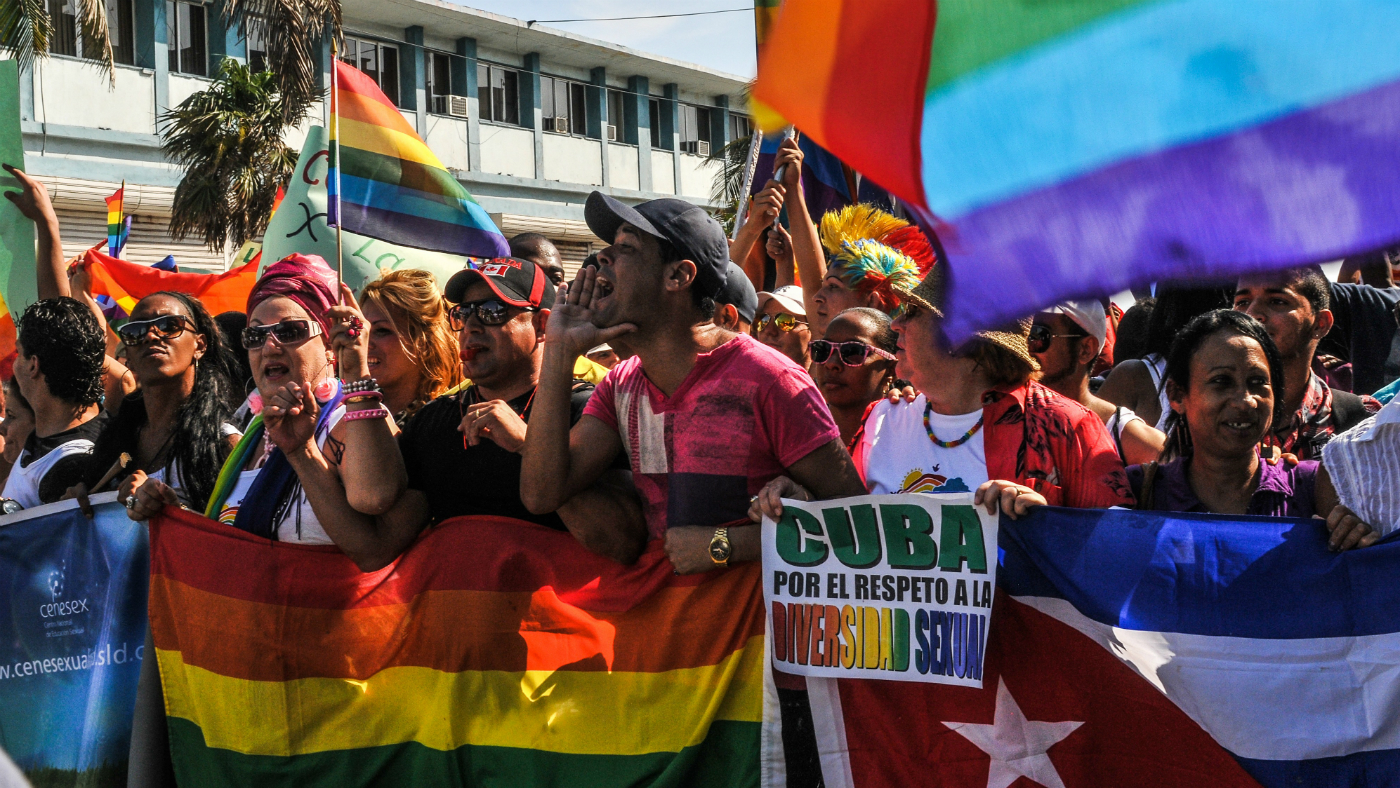Cuban president defies church to back same-sex marriage
Miguel Diaz-Canel says he is committed to eliminating all types of discrimination in society

A free daily email with the biggest news stories of the day – and the best features from TheWeek.com
You are now subscribed
Your newsletter sign-up was successful
Cuban President Miguel Diaz-Canel has expressed support for same-sex marriage ahead of a planned referendum on the issue.
The country will vote on a number of changes to the constitution in February 2019, including a proposal to define marriage as a union between “two people,” instead of “a man and a woman”.
President Diaz-Canel, who took over from Raul Castro in April, said he backed the proposal in an interview with the Venezuela-based television station Telesur.
The Week
Escape your echo chamber. Get the facts behind the news, plus analysis from multiple perspectives.

Sign up for The Week's Free Newsletters
From our morning news briefing to a weekly Good News Newsletter, get the best of The Week delivered directly to your inbox.
From our morning news briefing to a weekly Good News Newsletter, get the best of The Week delivered directly to your inbox.
“The approach of recognising marriage between two people, without limitations, responds to a problem of eliminating all types of discrimination in society,” he said.
The definition of marriage in the proposed constitution and the president's support “represent seismic changes” for the Cuban government's attitude towards gay people, says Voice of America.
In the decades after the 1959 Cuban revolution, members of the LGBT community were routinely persecuted, with many forced into exile and some sent for re-education at labour camps.
A lack of opinion polling makes it difficult to measure current public support for gay marriage, says Maria Isabel Alfonso, co-founder of the not-for-profit group Cuban Americans For Engagement.
A free daily email with the biggest news stories of the day – and the best features from TheWeek.com
But “acceptance of homosexuality, both within the government and in civil society, has grown appreciably,” the professor of literature and cultural studies writes in The Conversation.
Experts say the shift in public attitude is largely thanks to efforts by Raul Castro's daughter Mariela, a staunch LGBT rights advocate who first proposed the constitutional change.
But the move has been met with fierce opposition from conservative groups, especially evangelical Christians, “who have gained influence since religious freedoms were expanded in the 1990s,” says Ruben Gallo, a scholar and expert on Cuban culture and society.
“In recent weeks, five evangelical churches released a joint statement opposing the proposal, prompting protests by LGBT activists,” he writes for the New York Times.
Despite this, it is “widely expected that the draft constitution will be approved in the coming months, making Cuba one of the most progressive nations in the Americas in its protection of LGBT rights,” Gallo says.